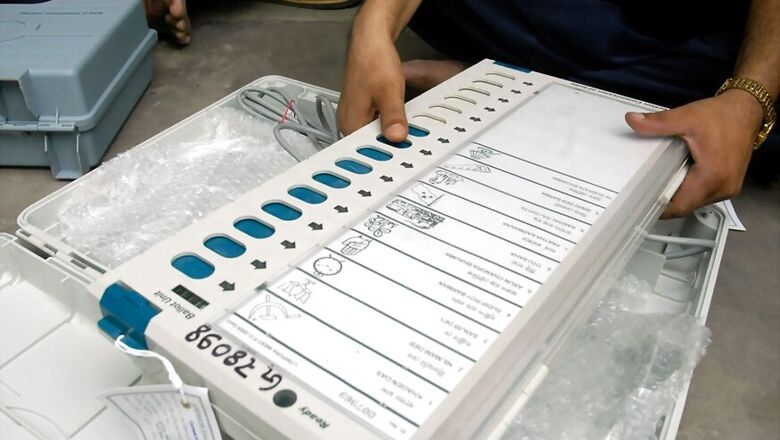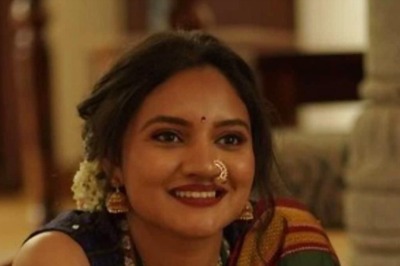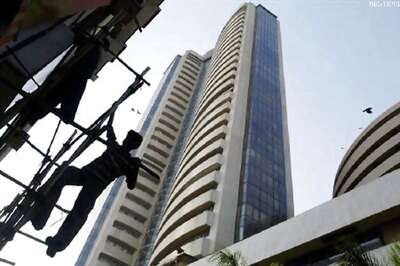
views
In the 2016 Tamil Nadu assembly elections, prohibition of liquor was a significant agenda. It was promised by M Karunanidhi’s Dravida Munnetra Kazhagam (DMK). Then the third front, a group of six parties known as the Makkal Nala Koottani (Progressive Welfare Coalition), too, promised prohibition. Pushed to a corner, the All India Anna Dravida Munnetra Kazhagam (AIADMK)’s J Jayalalithaa had to say something about it. She knew that a total prohibition was not possible. The government’s monopoly in selling liquor through its TASMAC shops brought in the much-needed revenue to the state government, and funded its various welfare schemes. So, she came up with the promise of graded reduction in the number of liquor shops.
Political analysts felt that it was a defensive move and this will result in her losing votes of women, who bore the brunt of the liquor menace. But the election results did not reflect this conjecture. Prohibition turned out to be a non-issue. After winning the elections, Jayalalithaa did reduce a few TASMAC shops here and there, but the next two chief ministers after her death, OPS and EPS, did not even bother to do so.
Now, in 2021, prohibition is not even on the main agenda. Neither the DMK nor the AIADMK has said anything about it. The rage is universal basic income and a host of free stuff to every household. This would mean more spending. Where will the state gets its money? From the liquor shops of course.
There are always some burning issues on which the DMK and the AIADMK will anchor their arguments every election. While the AIADMK has benefited from the 2G Scam, the DMK has been helped by Jayalalithaa’s disproportionate assets case and a host of other cases. But now, neither side can really talk about corruption as a main issue. Only the third or fourth fronts talk about corruption.
For the DMK now, the main pitch is the Bharatiya Janata Party (BJP)’s attempts to mobilise Hindu votes, and the AIADMK being subservient to the BJP and pawning Tamil Nadu’s welfare for its own survival. The DMK’s terminology to refer to the AIADMK government is “adimai arasu” (slave government). When confronted about the DMK’s past association with the BJP, including its presence in the Vajpayee government, the DMK’s answer is that then they had Karunanidhi who could rein in a rampant BJP.
It is, however, true that strong Muslim and Christian opposition to the BJP will have an impact on the AIADMK’s prospects. The AIADMK has countered this by saying that minorities have received more benefits during their rule. BJP supporters, on the other hand, have attacked the DMK as an anti-Hindu party. The AIADMK has not directly tagged on to this platform.
CAA (Citizenship Amendment Act) and NRC (National Register of Citizens) have seen some protests in Tamil Nadu, but hardly at the intensity seen in northern India. Nevertheless, CAA figures in the manifesto of the AIADMK, which has stated that it will ask the central government to revoke the law.
Farmers in Tamil Nadu have not bothered much about the three farm laws that have triggered huge protests in Punjab and Haryana. The DMK has stated in its manifesto that it will force the central government to repeal these laws.
In the past, issues related to Kaveri river water sharing with Karnataka, or the Mulla Periyar Dam water storage issue with Kerala were election issues. In this election, no one has even talked about them once.
In 2017, within days of Jayalalithaa’s death, Chennai witnessed a massive protest for reinstating Jallikattu, a kind of bull-taming sport traditionally held around Pongal festival in a handful of villages. This had been banned by an order of the Supreme Court after complaints of cruelty towards animals. The level of protests seen by Chennai was unprecedented back then. Protesters were supported overwhelmingly by the people, even as politicians were kept out. The state government scrambled and passed a law allowing Jallikattu. It was given immediate assent and the protest was brought under control with minimal violence. Today, no one even talks about this anymore. Neither the AIADMK has claimed credit for this achievement, nor the DMK has made any snide remark, thereby making it another non-issue.
Medical Entrance Exam NEET saw considerable protests in Tamil Nadu. Though the exam is here to stay and students have prepared themselves to deal with this, the DMK is not letting it go. It has stated that it will force the central government to abolish NEET. At the same time, it says in the interim it will extend the 7.5% reservation given to government school students by the AIADMK government to 10%, and include government-aided school students as well. The AIADMK, for its part, is of course proud of its 7.5% reservation. It is not clear whether this will have much of an impact on voting.
Until a few years back, the nuclear power plant in Kudankulam or the Neutrino observatory near Theni were seriously resisted by environmental groups, who were supported by opposition parties. In this election, no one is talking about these issues as well. In Tuticorin, protests forced the government to close the Sterlite copper plant. In the Thanjavur delta, protests have put a stop on hydrocarbon extraction, even though the Chennai-Salem highway expansion could not be stopped. These issues are also not seriously being discussed during the campaign.
The Liberation Tigers of Tamil Eelam (LTTE) and the Sri Lankan Tamil problem have become a non-issue, though the DMK has talked about dual citizenship for the refugees in India.
Thus, looking overall, there are no major contentious issues in this election, except the BJP’s focus to consolidate Hindu votes and its alleged control over the AIADMK, as well as the inability of the BJP-AIADMK to stop NEET.
It is true that the BJP has made considerable inroads in Tamil Nadu. It has attracted many high-profile defectors from other parties and some young achievers as well. But it invokes strong resistance among minorities. It is also resisted by Dravidian movement organisations, such as the Dravidar Kazhagam (DK), as a Hindu revanchist force. For the next few elections at least, there will be the BJP and those who align with it on one side and those who oppose it on the other. The BJP sure will not be complaining.
This is fifth in a series on articles by the author on Tamil Nadu elections.
Read all the Latest News, Breaking News and Coronavirus News here


















Comments
0 comment